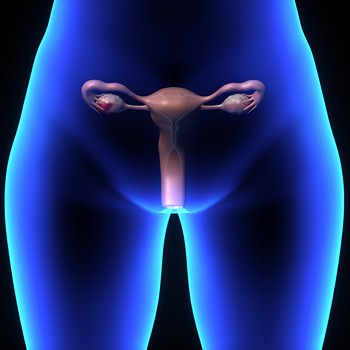Understanding Uterine Fibroids
Fibroids are common, benign tumors of the uterus that affect about 30% of all women. They are the most frequently diagnosed tumor of the female pelvis. They are made of nodules of smooth muscle cells and fibrous tissue that usually develop in the wall of the uterus. Fibroids may grow as a single nodule or in clusters. They may range in size from 1/10 of an inch to 8 inches in diameter.
 The majority of women with uterine fibroids have no symptoms; women who experience symptoms often report:
The majority of women with uterine fibroids have no symptoms; women who experience symptoms often report:
- excessive or painful bleeding during menstruation
- bleeding between periods
- a feeling of fullness in the lower abdomen
- frequent urination resulting from a fibroid that presses on the bladder
- pain during sexual intercourse
- low back pain
Causes
Researchers have not identified any factors that cause fibroids to grow, but research has shown that you are more likely to have uterine fibroids if you:
- are old enough to have a period or a baby
- are African American
- have a sedentary lifestyle
- are overweight
Women who have given birth appear to be at a lower risk for fibroids.
Diagnosis & Treatment
Family doctors and gynecologists often discover uterine fibroids during a routine examination. Imaging of the pelvis using ultrasound, MRI or CAT scans may be needed in order to see the fibroids better.
Most fibroids do not require treatment other than regular observation by a doctor. Depending upon individual circumstances, treatment for women who experience symptoms may include:
- a mild over-the-counter anti-inflammatory or painkilling drug
- stronger prescription drugs
- hormone therapy to reduce estrogen levels and shrinking the fibroids
- surgical removal of the fibroid
- At times, the surgeon may decide that taking the whole out along with the
- hysterectomy (surgical removal of the uterus)
- uterine fibroid embolization
If you suspect that you may have uterine fibroids, please make an appointment with your OB/GYN or family doctor and discuss your concerns.
